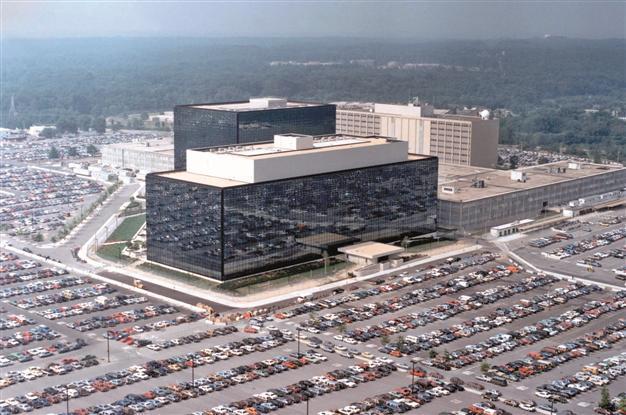US intel spied on Google, Brazil’s Petrobras: Report
RIO DE JANEIRO - The Asscociated Press

An aerial handout photo shows the United States National Security Agency (NSA) headquarters building in Fort Meade, Maryland. REUTERS photo
The National Security Agency’s (NSA) spying targeted the private computer networks of Google, a company that facilitates most of the world’s international bank transfers and Brazil’s state-run oil firm Petrobras, according to documents leaked by Edward Snowden, a Brazilian TV report said Sept. 8.
There were no details in Globo TV’s report about what information the NSA may have obtained.
All three companies are included in what the report said is an NSA training manual for new agents on how to target the private computer networks of big companies. They are Google, Petrobras was the Society for Worldwide Interbank Financial Telecommunication, better known as SWIFT, the Belgium-based company that facilitates most international bank transfers in what are thought to be secure transactions.
Klapper defends spyingEarlier reports based on Snowden’s documents revealed the existence of the NSA’s PRISM program that gives the agency comprehensive access to customer data from companies like Google and Facebook.
Separate reports last week in the Guardian, New York Times and ProPublica, also based on Snowden’s leak, indicated the NSA and its British counterpart had developed “new access opportunities” into Google’s computers by 2012, but the documents didn’t indicate how extensive the project was or what kind of data it could access. Director of National Intelligence James Klapper said in a statement that “it is not a secret that the Intelligence Community collects information about economic and financial matters, and terrorist financing.”
The NSA collects the information “for many important reasons” such as could provide “the United States and our allies early warning of international financial crises which could negatively impact the global economy,” his statement added. “It also could provide insight into other countries’ economic policy or behavior which could affect global markets.”
Klapper went on to underscore that the NSA has had “success in disrupting terror networks by following their money as it moves around the globe.”
“What we do not do, as we have said many times, is use our foreign intelligence capabilities to steal the trade secrets of foreign companies on behalf of - or give intelligence we collect to - U.S. companies to enhance their international competitiveness or increase their bottom line.”
He said the intelligence community’s “efforts to understand economic systems and policies and monitor anomalous economic activities is critical to providing policy makers with the information they need to make informed decisions that are in the best interest of our national security.”
U.S. journalist Glenn Greenwald, who received thousands of documents from Snowden and was the first to break stories about the NSA’s extensive program to collect Internet and phone data, worked with Globo for its report.
It came a week after Greenwald and the network said NSA documents showed that U.S. spy agencies had monitored the president of Brazil as well as Mexico’s new president prior to his election.
During a previous interview in the Globo broadcast, Greenwald said the documents he obtained from Snowden contain “much more information on spying on innocents, against people who have nothing to do with terrorism, or on industrial issues, which need to be made public,” according to Reuters. In an email exchange with the agency however, Greenwald declined to discuss the report further.
